Stress Vs. Anxiety: The Basic Difference That You Need To Know
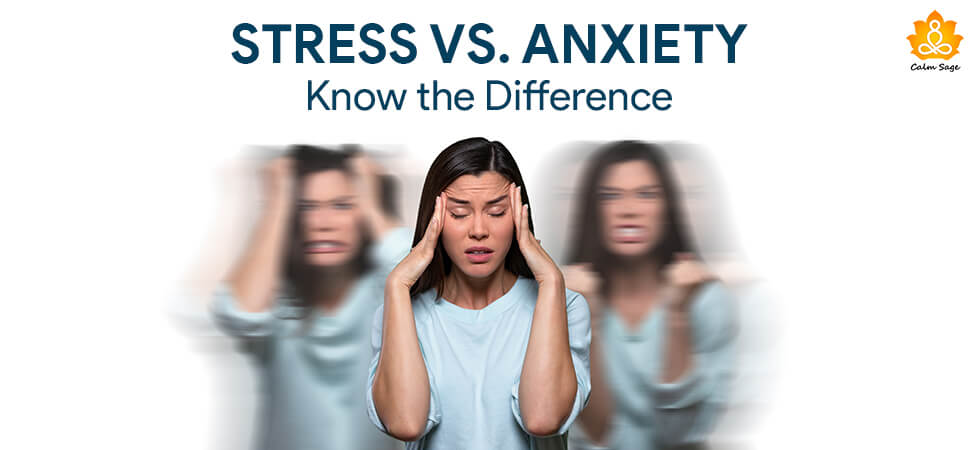
Which out of the two phrases are you likely to use if you encounter a situation that disturbs your emotional equilibrium?
“I am so stressed” or “I feel anxious about this situation.”
You might just pick a random phrase thinking, how does it matter? Both phrases are unpleasant! Well, they certainly are! But they do differ. While the first phase shows that you know the trigger that is causing you to stress, and the second phrase shows that you are being apprehensive about something that has not taken place.
(Never thought this way! Did you?)
Well, you are not the only one who confuses their emotional response between feeling stressed or anxious. We all at some point experience them and might end up using the terms stress and anxiety interchangeably. However, psychologically these two are entirely different emotional responses.
Depending on whether you are stressed or anxious, you identify your triggers and work on them. Therefore, to get effective treatment of your stress and anxiety, the first step is to understand the difference between the two.
Also Read: Is Health Anxiety Real? | Symptoms & Treatment
Understanding The Difference Between Stress And Anxiety Through Example
Example: Mr. Bob and Ms. Pixie have to give an important presentation at their board meeting. It is their first time to address such big people in the industry. They both are experiencing the following signs and symptoms.
Signs experienced by Mr. BOB
- Will we be able to finish the presentation in time (recognized threat).
- If we don’t perform well our boss will be upset with us (external factor).
- I just want to get done with this presentation (short-term).
Signs experienced by Ms. PIXIE
- I have this feeling that I won’t be able to nail this presentation (non-identifiable trigger).
- What if I fumble or go mute on the podium (internal thoughts).
- I haven’t been able to sleep for months because of this presentation (long-term).
Can you guess who is feeling stressed and who is experiencing anxiety in this situation? Clearly, Mr. BOB is stressful because his source of stress is external, short-term, and a recognized threat is there (not meeting the criteria).
Whereas in the case of Ms. PIXIE the source of emotional response is internal, long-term, and does not have an identifiable trigger, making her feel anxious.
Let us understand these differences between stress and anxiety with more clarity.
Common Differences Between Stress and Anxiety
Stress and anxiety can be differentiated on various grounds. We will consider each of them one by one and understand the differences between feeling stressed or anxious.
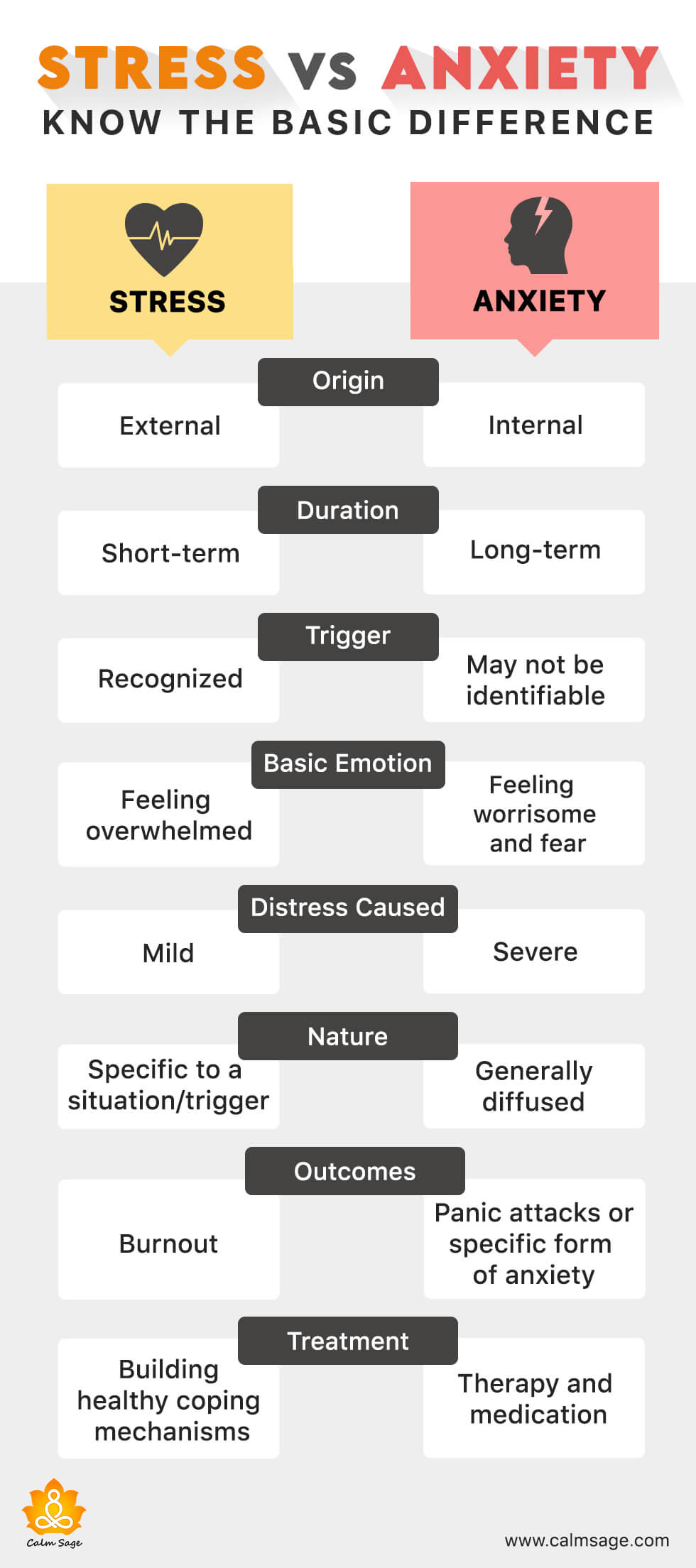
Stress vs. Anxiety: Definition
- Stress: “The non-specific response of the body to any external demand or change.”
- Anxiety: “Persistent feeling of apprehension or dread in situations that are assumed threatening.”
Stress vs. Anxiety: Origin
- Stress: It is generally generated in response to an external situation that is being experienced by a person.
- Anxiety: An individual experiences anxiety generally due to internal causes. The racing thoughts make an individual feel out of control.
Stress vs. Anxiety: Duration
- Stress: It often ends once the event or the cause that is stressing you out passes.
- Anxiety: Anxiety is persistent, wherein, excessive worries continue to be there even in the absence of stressor.
Stress vs. Anxiety: Symptoms
There are some signs and symptoms that are unique to stress and anxiety separately. However, few of these signs often overlap with each other. We shall review both the unique and overlapping signs of stress and anxiety.
| Signs of Stress | Common Signs of Stress and Anxiety | Signs of Anxiety |
|---|---|---|
| Frequent anger outbursts | Changed sleeping and eating habits | Restlessness |
| The feeling of being overwhelmed | Rapid breathing | The feeling of unease or dread |
| Moodiness and irritability | Elevated heart-rate | Nervousness |
| Frequent headaches or muscle aches | Feeling dizzy or short of breath | Apprehensive thoughts |
| General unhappiness | Difficulty concentrating | Irrational fears |
Stress vs. Anxiety: Treatment
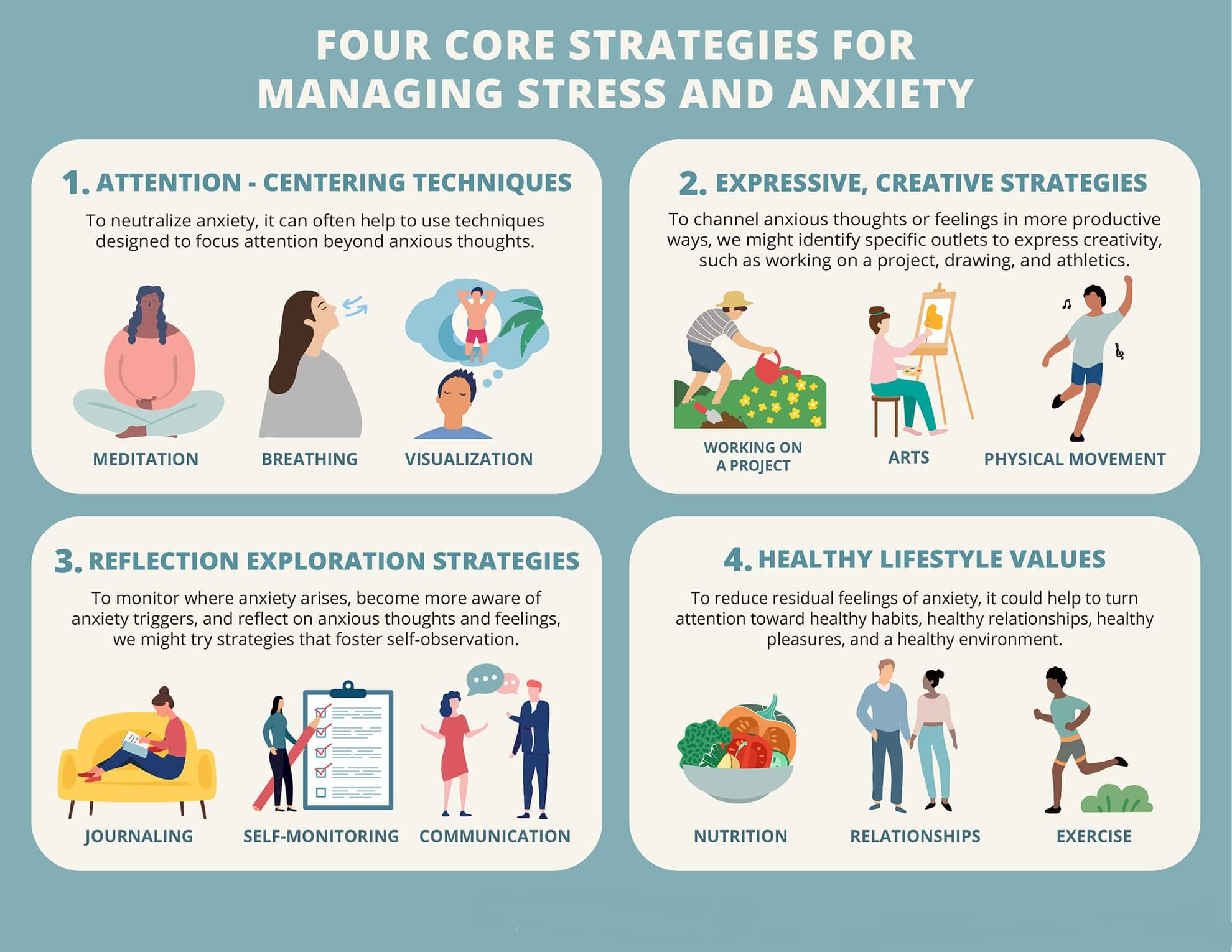
Stress: Day-to-day stressful life events can be resolved by working on effective coping mechanisms (relaxation breathing, mindfulness, journaling) and bringing crucial lifestyle changes. But if the stress prolongs, seeking psychotherapeutic help is suggested.
Anxiety: To deal with anxiety seeking help from a mental health professional is suggested. Often a combination of therapy and medication is preferred as a treatment approach for anxiety. Along with this, certain lifestyle changes like exercising, building a healthy sleeping routine, and more, can decrease the symptoms of stress.
Stress vs. Anxiety: Other Differences
1. Stress:
Prolonged exposure to stress can result in exhaustion of physical, emotional, and psychological resources, also known as burnout. It generally manifests itself in the form of physical issues like heart or gastrointestinal issues. Usually, stress doesn’t hinder the daily life functioning of an individual.
2. Anxiety:
If anxiety persists it can result in a panic attack or any specific form of anxiety (like social anxiety). Along with this, persistent anxiety also results in emotional difficulties. Continuous and untreated anxiety can cause difficulty in maintaining a daily life routine for an individual.
Stress Vs. Anxiety: Table of Differences
| Dimension | Stress | Anxiety |
|---|---|---|
| Origin | External | Internal |
| Duration | Short-term | Long-term |
| Trigger | Recognized | May not be identifiable |
| Basic Emotion | Feeling overwhelmed | Feeling worrisome and fear |
| Distress Caused | Mild | Severe |
| Nature | Specific to a situation/trigger | Generally diffused |
| Outcomes (due to prolonged exposure) | Burnout | Panic attacks or specific form of anxiety |
| Treatment | Building healthy coping mechanisms | Therapy and medication |
Frequently Asked Questions
1. Why are stress and anxiety terms used interchangeably?
Both stress and anxiety are a part of our body’s natural flight or fight (run or face the situation) response. When we face a difficult situation our heart starts beating faster, we feel uneasy, and our blood pressure fluctuates, indicating that we are under stress. If this stress prolonged our body’s response to it takes the form of anxiety.
The physiology behind these two emotional responses is the reason why we often end up using stress and anxiety as a substitution for each other.
2. Is stress a form of Anxiety?
A simple answer to this question is NO. Stress is not a form of anxiety. They both are different emotional responses. Stress may trigger anxiety in some situations.
3. Which is worse, Stress or Anxiety?
Both stress and anxiety have their own challenges. However, the fact that stress fades away once the stressors are out of the picture, anxiety may continue to linger, making anxiety more challenging to deal with. But both mental health conditions should be taken seriously as they temper our wellness.
4. What do we experience first, Stress, or Anxiety?
Anxiety can be triggered by stress. However, a stressful situation does not always lead to anxiety. An individual may experience both at distinctive times.
To conclude stress and anxiety are normal human reactions to a threatening or emotionally challenging situation. They both are healthy to an extent where they don’t interfere in our normal functioning, beyond which they become a matter of concern. That is when seeking help from professionals is suggested to live a healthy life.
Is there something bothering you or making you feel stressed or anxious? Feel free to connect with us and talk your heart out at info@calmsage.com
Stressed, Anxious, Depressed? You Deserve to Be Happy!
Disclaimer: As BetterHelp Affiliate, We may receive compensation from BetterHelp or other sources if you purchase products or services through the links provided on this page.
More power to you!






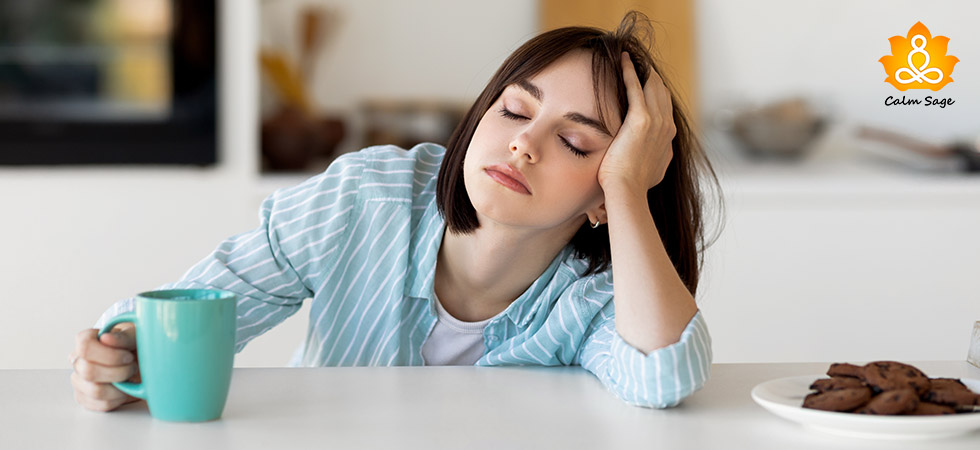
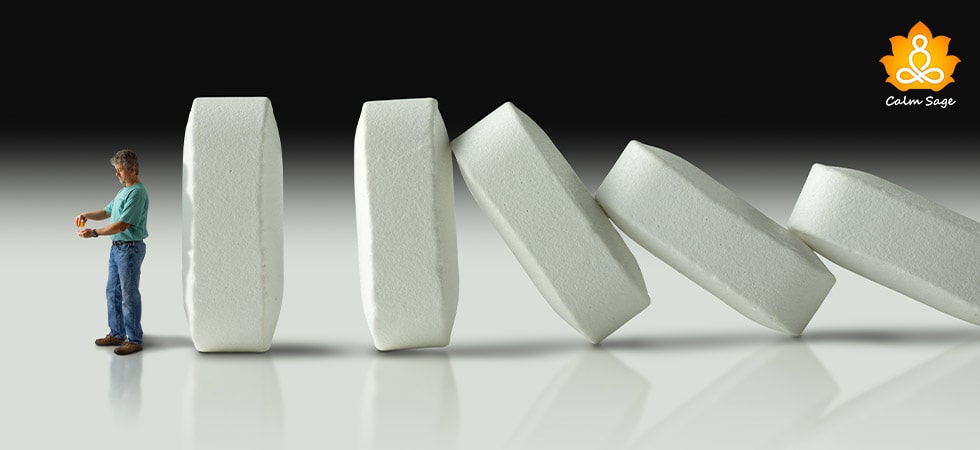













A quite thin line between these 2 but all of us use these in similar forms. many a times.
This article clearly bifurcated the core differences. Thanks!